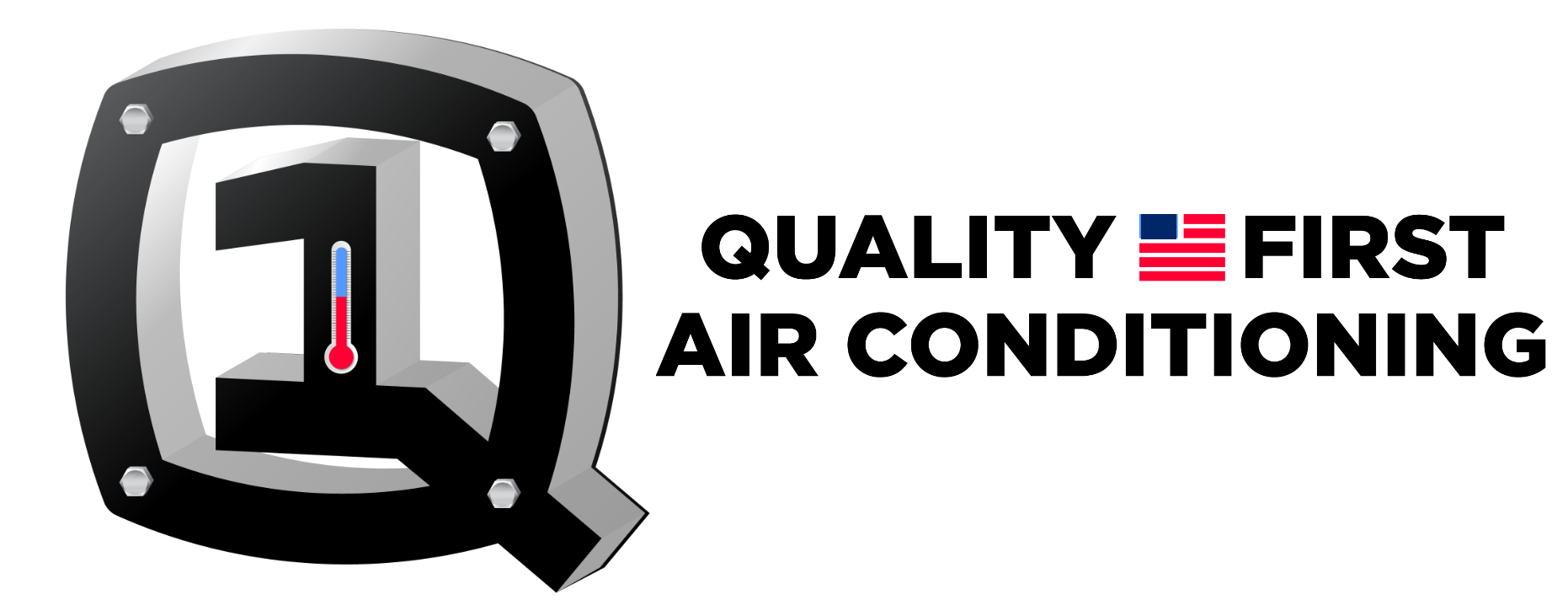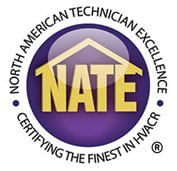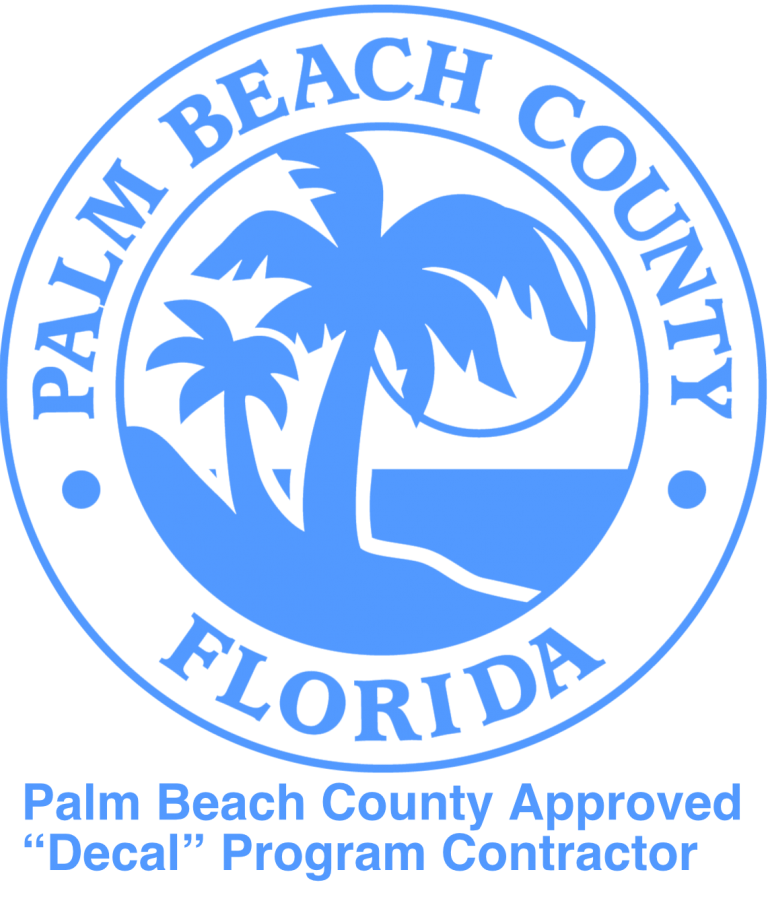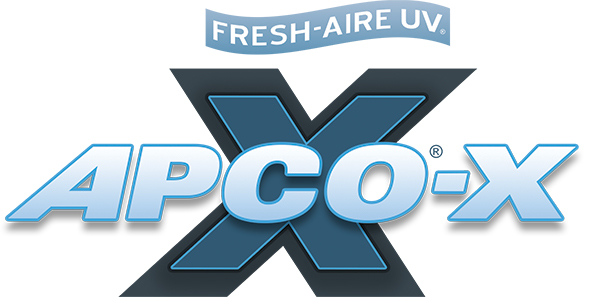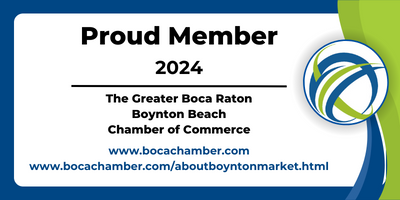Key Takeaways
-
Finding a reputable AC company means dodging scams and ensuring you get the best service possible. Making this decision will further lengthen the lifespan and increase the energy efficiency of your HVAC system. Reputable companies always do the more cost-effective job in the long run.
-
Start your search by asking your friends and family for their suggestions. Next, look on social media for HVAC reviews and use local directories to search for HVAC contractors located in your area.
-
Never skip checking your company’s credentials. Verify their licenses, insurance, and relevant certifications such as NATE or ACCA to make sure they are working legally and have qualified technicians.
-
Watch for customer complaints on review boards like Yelp and Angieslist.com. It provides insight into service quality and allows you to locate companies with good reviews and high ratings.
-
Be cautious of companies using high-pressure sales tactics, demanding upfront payments, or offering extremely low bids, as these can indicate potential scams or poor service.
-
Consider long-term factors like maintenance plans, brand reputation, and customer service availability to build a lasting relationship with a trusted HVAC provider.
Look out for their certifications, reviews, and years of experience in the industry. Reputable companies are always licensed and certified, guaranteeing that they work according to industry standards.
Look for a company with positive online reviews and testimonials to understand customer satisfaction and service quality. Experience is key as well—companies that have a proven record can just produce a better product.
Choose a company that provides upfront pricing and a clear breakdown of services to prevent surprise charges. Asking trusted friends or family for referrals is a great way to find trusted professionals.

An AC company with integrity puts customer service first with open communication, prompt service, and trustworthy work. In the following sections, we will outline major steps in the process.
Having this knowledge will help you find a reputable AC company to meet all your cooling needs.
Why Finding a Reputable AC Company Matters
Finding a reputable AC company is important—not only to keep your home comfortable now, but to ensure a dependable system that will save you money in the long run. The HVAC industry, as with many others, tends to attract fly-by-night operators. If not, homeowners risk falling prey to scams or less reputable service providers that ultimately create larger problems later.
A reputable company will make sure your system gets repaired or maintained the right way, saving you headaches in the future. Good companies take pride in their work. For example, they use full-time, W2’d technicians that are incentivized to do the installations right the first time, minimizing callbacks and issues.
This meticulousness extends the life of your HVAC system—sometimes over 20 years—while increasing your home’s value. Their regimented schedules equal more flexibility too, particularly at busy times like summer and shoulder seasons.
In addition to being reliable, the best companies will be concerned with energy efficiency. In fact, 90 percent of installations are done poorly, with the vast majority of them having serious deficiencies. Proper service prevents these problems, saving energy costs and ensuring lasting performance.
Where to Begin Your Search
We know that finding a trustworthy AC company can be daunting, but following these straightforward steps makes it much easier. Begin your search by collecting a short list of qualified, reputable HVAC contractors in your area. This can be done through word-of-mouth referrals, various online review sites, and Google’s local three-pack.
Each approach provides different perspectives to ensure you can compare options and make a better choice.
Seek Referrals from Your Network
Your network is sometimes the only reliable source for sound advice. Inquire with your friends and family members to find out who they would recommend for HVAC service. Their insights will provide you with rich information about service quality and reliability.
Be specific about what you’re looking for. Whether you need air duct cleaning, emergency repair, or air purifier installation, taking this step will make sure their recommendations fit your needs best.
Combine these referrals into a master list and talk with others’ experiences with those companies to determine their reliability.
Utilize Online Review Platforms
Online review platforms such as Yelp or Angies List are incredible resources that can help you learn more about potential local AC providers. Seek positive ratings and lengthy reviews that point to a track record of service quality.
Look for patterns across feedback, like on-time performance, responsiveness, service availability, including the addition of air quality benefits into offerings. Putting side-by-side reviews into a table format allows you to prioritize your choices.
Consult Local Online Directories
Local directories such as Yelp are a good resource to help identify HVAC companies in your area. Each listing comes with a robust profile complete with contact info, a description of the services offered, and in some cases customer reviews.
Choose a provider with around-the-clock repair service or one that delivers whole-home packages featuring stand-alone heating, cooling, and energy-saving advice. Narrowing down results by distance and area of expertise will give you a more concise list to choose from.
How to Verify AC Company Credentials
When you’re looking for a reputable AC company, make sure you go the extra mile to verify their credentials. That’s how you end up hiring qualified, reliable, trustworthy professionals. This step ensures you’re getting safeguarded from any future liability and ensures top quality service.
Here are step-by-step instructions, including information on licensing, certifications, training, and company history.
1. Confirm Licensing and Insurance
It’s important to make sure that the AC company has an up-to-date license to be legally working in your state. Ask to see proof of their licensing. Honest AC companies will have no issues sharing this with you.
Just as crucial, though, is checking that they really do have insurance. Liability insurance protects you from property damage while they’re servicing your system, and workers’ compensation insurance keeps your techs covered if they get hurt on the job.
Without these, you risk being put on the hook, financially, for accidents. For your peace of mind, take the extra step to jot down their license and insurance information to refer back to later.
For example, a licensed and insured company will often display these credentials on their website or provide them if asked, reflecting their professionalism and transparency.
2. Check for Relevant Certifications
Certifications are a good indication of a company’s commitment to best practices and technician training. Inquire about certifications from bodies such as NATE (North American Technician Excellence) or ACCA, which indicate an emphasis on technical excellence.
These certifications usually have a continuing education component, making sure that technicians are up-to-date with the latest and greatest in HVAC technologies. A technician that is NATE certified, for example, is trained to find and fix complicated system problems quickly and correctly.
Create a checklist with your key certifications, such as EPA Section 608 Certification to handle refrigerants, to quickly weed out the bad companies.
3. Inquire About Technician Training
Quality service begins with training, and that’s a fundamental industry belief. Inquire into the company’s technician training programs, honing in on real-world experience in HVAC repairs and installations.
Ask how often their technicians go for training on new tools and technology. Gain access to advanced solutions. For example, many new AC systems now come equipped with smart technology, which means technicians need the latest knowledge.
Ask what qualities or qualifications the company looks for in a technician that they would assign to your job. By sending the right technician with proper training, diagnosis and repair will be done right the first time, minimizing repeat visits and their inconvenience.
4. Validate Company History and Standing
Knowing a company’s past is one of the best ways to measure their trustworthiness and dependability. Find out how long they’ve been in business—companies that have been around longer usually show they’ve got more stability.
Look up their BBB rating to learn more about their reputation and customer satisfaction levels. Dig deep into their website, especially pages like About Us to find information about their experience and accomplishments.
For instance, an AC company that’s a member of specialized professional organizations—like RSES—tends to show dedication to upholding industry standards and excellence. Looking at customer reviews and testimonials can further give you an honest glimpse into their service quality and response time.
Evaluate Service and Expertise
We understand that when looking for a trustworthy AC company, it’s important to look beyond their range of services and expertise. Begin by gauging the breadth of services they offer to make sure they fit your needs. Ask about common offerings such as installation, repair, maintenance plans, and emergency services.
For instance, GoMaxAir provides 24/7 emergency repairs, an essential service when temp extremes hit. A solid maintenance plan should feature frequent inspections, cleaning, and tune-ups that ensure your system is operating at peak efficiency. Improving maintenance of these systems can reduce energy consumption by 15-20%, resulting in millions in cost savings.
Familiarity with the precise HVAC systems and brands being installed is just as crucial. Inquire with the company about their knowledge of your system or preferred brand. Technicians certified by trade organizations such as North American Technician Excellence (NATE) have undergone challenging training, education and testing, guaranteeing quality installation and service.
In fact, bad installation can lower system efficiency by more than 30%. This decline in efficiency and performance has real impacts on energy costs. To measure their expertise ask for case studies as well as reviews or examples of past projects.
In fact, per BrightLocal’s 2023 Local Consumer Review Survey, 85% of consumers say they trust online reviews as much as personal recommendations. Look at how many reviews they have and whether those reviews are mostly positive or negative to get a sense of the company’s reputation. You could come up with a bullet point list of each company’s area of expertise.
This will allow you to compare and see which one meets your needs the most.
Assess Communication and Professionalism
Good communication and professionalism are what really distinguishes a good AC company from a great one. Look first at how responsive they are in your initial queries. GoMaxAir’s customer-first philosophy leads them to answer questions quickly and thoroughly.
Consider how staff professionalism comes through if you’re contacting them in person, by phone, or online. Friendly, informed agents are an indicator of a company culture that values customer satisfaction. Talk about how they manage communication and touch points while in service.
A well-defined communication process is an excellent indicator of how committed they are to keeping you in the loop. Gauge their willingness to understand and respond to your priorities and needs. In short, a company that listens carefully to your needs will be better positioned to provide you with the type of service and expertise you desire.
Scrutinize the Estimate Details
A detailed, written estimate is a must when you’re comparing companies head-to-head. Make sure the estimate breaks down the costs, including labor and parts, as well as warranties. For example, a clear line-item estimate could provide a breakdown of diagnostic charges, equipment, and add-on fees.
Request clarifications for any vague or unclear charges to prevent getting blindsided down the line. Getting several estimates in comparing helps you find reasonable costs, saving you money while making sure the company you hire has an appropriate cost.
Ask About Energy Efficiency Options
In addition to decreasing energy use and associated environmental impacts, energy-efficient HVAC systems can save homeowners money. Ask about high-efficiency models and talk about savings they can expect on their energy bills. Making sure your system is sized properly is a key ingredient to getting the most efficiency possible.
Energy use is greatly exacerbated by underequipped or overequipped units. Request a list of energy-efficient options the company sells and installs, like smart thermostats or ENERGY STAR-certified systems.
Understand Warranty and Guarantees
Warranty coverage is an important aspect of the evaluation to determine a company’s dependability. Inquire as to warranties on both parts and labor, and get answers in writing along with information on coverage duration and conditions.
For instance, a one-year labor warranty instead of a five-year warranty on parts could make a difference. Be sure to know what is and isn’t covered, and ask for written documentation for your files. Strong warranty terms also offer peace of mind and protect your investment.
Spotting Potential AC Scams
When looking for a trustworthy AC contractor, knowledge is the best way to protect yourself from scams that can cost both time and money. Scammers love to take advantage of unsuspecting homeowners, so identifying red flags will help you make sure your investment is protected.
Here, I’ll profile how to spot predatory practices and protect yourself from the bad actors out there.
Be Wary of Extremely Low Bids
Low bids can be tempting but are rarely worth the savings. It’s just a shortcut to an inferior job or hidden costs. For example, a contractor may initially estimate a replacement part at a low price and then later try to upsell you on other, unrelated repairs.
No matter the service you’re getting, make sure to always get quotes from multiple companies and request itemized quotes outlining what is included. If a written estimate is too low to be true, question it.
As an example, a contractor that can recharge refrigerant without repairing a leak first should raise a red flag. Listen to your gut and steer clear of deals that seem too good to be true.
Avoid High-Pressure Sales Tactics
Aggressive sales tactics, such as pushing you to make a decision on the spot, are a warning sign. Give yourself time to consider options, and ask for detailed proposals in writing.
If they say an offer is only good today, ask them why they’re trying to rush you. In fact, they may be forcing you to choose the wrong option.
Come up with a list of questions to ask like, “What is covered under the service?” or “What are the payment conditions?” Thoughtful discussion is always preferable to quick decisions.
Question Unnecessary Repairs
Scammers usually suggest far more repairs than necessary. For example, if two technicians recommend completely different solutions, one is likely upselling. If proposed repairs take you by surprise, get a second opinion or press for clarification.
Legitimate contractors will check the basics first, such as the thermostat, before advising expensive repairs. Overcharging for parts and labor is another popular scam, so document every repair proposal for future comparison.
Resist Upfront Payment Demands
Reputable companies will never ask for full payment up-front. The norm in HVAC contracting is partial deposits and staged payments. Talk about these terms in advance and steer clear of contractors who want full payment up front.
Develop a decision checklist, including what’s an acceptable percent of payment, to help determine decisions. This protects consumers from financial risk and gains consumer trust.
Long-Term Considerations
Choosing a trusted AC company is about more than just short term service or installations. It’s really about establishing a partnership that will help your system run at peak performance for many years. A properly cared-for air conditioning unit can potentially cycle over 600,000 times during its lifespan.
Overlooking fundamental practices such as adequate commissioning or ongoing maintenance can significantly reduce its lifespan. Doing the work to sift through companies with a long-term perspective will not only save you money, but give you greater peace of mind.
Evaluate Maintenance Plan Options
Routine maintenance is one of the most important aspects of long-term HVAC system health. When negotiating a maintenance plan, query directly about what services are covered. For instance, does the plan include seasonal inspections, cleaning, or refrigerant checks?
The frequency of these services is important as well. Annual maintenance can help avoid energy deficiencies, which affect 90% of new installations. Reconcile the costs and benefits between providers in order to find likely savings. Some plans even provide discounts on repairs, helping you save long-term.
Consider Brand Reputation and Longevity
The brands an AC company sells say a lot about its focus on high quality. Inquire about these brands’ reputations and how long the company has worked with them. For example, a firm with decades of experience might have more profound intuitions about a brand’s long-term performance.
Customer feedback is another rich source. A simple table comparing satisfaction ratings can show which brands have a proven track record of providing reliability and comfort. Companies who focus on technician training shine through as well, as they make the quick pivot to new technology that seems to change every year.
Assess Customer Service Accessibility
Customer support is key ingredient in long-term relationship. Inquire about their available communication channels—do they provide support over the phone, via email, or through chat—and their response times.
When minutes matter, a company that has a committed team to provide you with quick, around-the-clock support is priceless. Features such as 24/7 support or online service scheduling help make maintenance and repairs more convenient.
Here’s a quick list of what to look for in customer service:
-
Availability of representatives outside regular business hours
-
Clear communication channels for troubleshooting
-
Prompt responses to inquiries and service requests
-
User-friendly online portals for scheduling and updates
Optimizing Your HVAC Website
Building a robust web presence is absolutely necessary for every HVAC contractor. Pay attention to the essentials such as domain age, mobile-friendly design, and customer trust factors. In this manner your HVAC website will get in front of the right eyeballs and turn them into repeat customers.
Register a Memorable Domain Name
Of course, a great domain name is only the beginning to creating your brand online. Pick a domain name that includes the city or area you serve and what you do, like “CityNameHVAC.com,” to make it clear what you offer. It should reflect your brand identity—are you known for reliability, then build it into the name.
Always search for availability through registrars such as GoDaddy or Namecheap and register the domain as soon as possible. Come up with several ideas to prevent hold-ups and ensure your branding and messaging remain uniform across all platforms.
Select a User-Friendly Website Builder
A website builder built for your business makes it easier than ever to create a website and manage it moving forward. Website builders such as Wix or Squarespace provide HVAC-specific templates, built-in SEO tools, and easy customization options.
Search for easy-to-use features such as drag-and-drop editors, mobile optimization, and blog integration. User-friendly site platforms make it easy to change out pages for different services, or run seasonal promotions, keeping your site fresh and up-to-date.
Design for Mobile Devices
With over 60% of all users searching for HVAC services on mobile devices, having a mobile-friendly site is a must. With a mobile-responsive design, text and images automatically scale to fit, and scrolling and navigation is seamless.
Check your site on mobile and tablet as well to see if a button is in the wrong place or the page loads too slowly. Make it user-friendly; readable font and easy to navigate menu go a long way. Keep in mind that Google’s ranking is increasingly taking mobile usability into account.
Showcase Customer Testimonials
Customer reviews can be one of the most powerful tools in your arsenal for building trust. Put testimonials front-and-center on your homepage, or, better yet, have a page devoted to in-depth case studies of your happiest customers.
Focus on reviews that mention positive results, like quickly responding to a home emergency, or finding a new energy-efficient solution. Solicit honest reviews with follow-up emails or via social media, since Google loves genuine, consumer-created content.
Add Essential Service Pages
Making detailed service pages creates a better experience for users and search engines. For example, a page titled “AC Installation Services” with a clear list of benefits and FAQs helps potential clients understand your offerings.
Use local keywords such as “HVAC repair in Dallas” throughout your content and page titles, but don’t keyword stuff. Add contact forms or pricing estimates to encourage immediate action.
Implement SEO Strategies
SEO is what gets your website to the top of the search engines. Target locally relevant keywords, like “heating repair near me.” Keep your site looking fresh by regularly adding new content, whether it’s new blogs or seasonal HVAC tips.
Don’t keyword stuff pages, Google’s algorithms heavily punish this tactic. For more than 14 years, I’ve harnessed HVAC SEO tactics to assist businesses crush competitors in search placement.
Integrate Analytics for Performance Tracking
Analytics are a gift to marketers that tell us how users behave and how well our site is performing. Tools such as Google Analytics allow you to track traffic, bounce rates, and the effectiveness of landing pages.
Use this information to improve existing content, measure marketing ROI, and plan future campaigns. Key metrics, such as your conversion rate, will help you gauge if your site is doing a good job of converting leads into customers.
Enhancing Your HVAC Website’s Performance
A great performing website is an absolute must if you’re an HVAC company looking to establish greater brand trust, drive new customers, and increase your HVAC website performance. When you prioritize user experience, mobile optimization, and prominently feature your credentials, your website can be one of your best assets for generating new business.
Simplify Website Navigation
The overall structure of your website should lead visitors to your most important content quickly and easily. Structure your pages in an intuitive hierarchy, using clear categories such as “Services,” “About Us,” and “Contact.” A search bar built directly into the header makes it easy to find exactly what you’re looking for.
For instance, a homeowner looking for “AC repair” can be connected to relevant service pages immediately. Think one simple navigation bar with subcategory drop-downs that keeps the customer moving. By following navigation best practices like keeping the main menu to 7 options or fewer and including breadcrumbs, you can avoid potential confusion and boost visitor retention.
Ensure Mobile Responsiveness
Mobile devices account for over 50% of all global web traffic. Your website should automatically adjust to look its best on smartphones and tablets. Make sure to test layouts on devices with different screen sizes, but make sure buttons are large enough to tap and text is legible.
Resizing image dimensions and compressing images increases performance. This is important since just a one second load time increase can dramatically increase bounce rates. Keeping an eye on metrics such as mobile page load time and user retention helps you understand what needs to be fixed.
Incorporating a responsive design checklist, with features like touch-friendly navigation and fast-loading pages, will help you provide an excellent experience to all users on any device.
Streamline Service Request Process
Removing friction in the way customers request service goes a long way. Add clear forms with fields for basic information, like name, contact info, and type of service needed. Large, colorful call-to-action buttons that say things like “Request Service Now” get users where you want them to go.
Automated acknowledgment emails help build trust with customers by assuring them that their requests have been received. Providing a visual map of every step in the process, from submission to confirmation, builds trust, adds clarity, and minimizes confusion.
For instance, including a progress tracker lets users know where their inquiry is in the process, improving user experience and expectations.
Highlight Success Stories and Credentials
Showcasing your success stories or case studies not only helps to build your credibility but resonates with potential clients. Post case studies highlighting finished projects, like “Replaced HVAC system for 3,000 sq.ft home in less than 48 hours.
Google and Facebook testimonials are great because they are verified as real by their platforms’ review verification systems. Display any awards or certifications as prominently as possible on your homepage to demonstrate authority.
Visual content—such as before-and-after photos—combined with customer testimonials can help show the tangible difference your services make. Imagine a custom-built “Our Achievements” page that stacks these components like bricks in a wall, further building your stellar reputation.
Conclusion
All of this may seem like quite the undertaking to find a reputable AC company, but it’s well worth the work. You need your home to be comfortable and your bank account to be healthy. The right company offers more than temporary solutions. They provide true knowledge, honest value, and lasting service for your system. By verifying credentials, reading customer reviews, and asking the right questions, you can steer clear of scams and ensure you receive the highest caliber of service. Never underestimate the power of an informed consumer—it’s all about knowing what to look for and trusting your research. You deserve the best in quality, service and comfort. Make an informed decision and you’ll reap the benefits. Begin your search now, and rest easy knowing your AC is being cared for by a reputable company.
Frequently Asked Questions
Why is it important to choose a reputable AC company?
A reputable AC company is your best bet for quality service, proper installation, and trustworthy repairs. This not only protects your investment and ensures greater efficiency, but helps you avoid expensive missteps. Companies that you can trust are committed to satisfying their customers and upholding the best practices of the industry.
How can I start searching for a reputable AC company?
Start by requesting referrals from friends and relatives. Look for online reviews using reputable review sites such as Google and Yelp. Find companies with five-star ratings, explanatory reviews, and a visible online footprint.
What credentials should I check when hiring an AC company?
Check licenses, certifications, and insurance. Check for affiliations with industry organizations such as NATE or ACCA. These certifications and licenses demonstrate expertise and adherence to industry standards.
How do I evaluate an AC company’s expertise?
Inquire as to their experience with your AC system type. Ask for references from previous clients. Reputable companies will answer those questions in detail and should have a good understanding of HVAC systems.
What are common signs of an AC scam?
Be on the lookout for suspiciously low estimates, requests for full payment upfront, or high-pressure sales tactics. Legitimate companies provide written contracts, good faith pricing, and time for you to think things over.
Should I prioritize long-term maintenance plans?
Yes, routine maintenance does increase your AC system’s lifespan and repair costs. Find an HVAC company that provides reasonably priced maintenance service plans to keep your system running at peak performance and efficiency.
Can a professional HVAC website indicate a reputable AC company?
Of course, a good-looking website doesn’t guarantee you’ll find a professional company. Watch out for clear descriptions of their services, plenty of customer testimonials, and easy-to-find contact information. This demonstrates that your company is open and places a high importance on clear communication.
